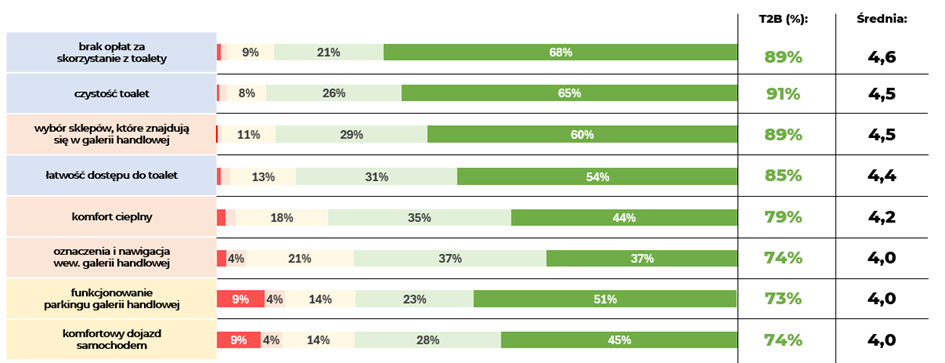ZPPHiU raises concerns over shopping mall infrastructure standards
The Association of Polish Trade and Service Employers (ZPPHiU) has criticised the condition of basic infrastructure in shopping centres, pointing in particular to car parks and toilets. According to the organisation, these facilities are often poorly maintained, limited in availability, or subject to additional charges, despite being financed through tenants’ common costs.
Examples cited include restrictions on free parking to just one hour in centres such as Sadyba Best Mall and Avenida Poznań. ZPPHiU argues that customers should have access to free and clean infrastructure as part of the overall shopping experience, especially at a time when shopping centre footfall is declining. Data from Proxi.cloud show that in the first half of 2025, the number of customers visiting shopping centres fell by 6.9% year-on-year, while the total number of visits dropped by 14.5%.
Research conducted by Omnisense on behalf of ZPPHiU and the Polish Association of Retail Tenants (PSNPH) confirms that clean and accessible toilets, as well as free use of them, are among the most important factors influencing customer satisfaction. According to the survey, 91% of respondents considered clean toilets essential, while 89% opposed fees for their use. Parking facilities were also identified as decisive: 73% of Poles said car park conditions influenced their choice of shopping centre, with key expectations including at least two hours of free parking (97%), the availability of spaces (96%), wide parking bays (89%), and clear signage (85%).
ZPPHiU has also questioned the transparency of common cost structures, noting that rising charges have not led to visible improvements in infrastructure. The organisation argues that additional revenue from parking fees has not translated into lower common costs for tenants, while landlords increasingly prioritise rent increases and investments linked to ESG criteria. According to ZPPHiU, such projects raise the book value of malls and facilitate access to financing but often place the financial burden on tenants. In some cases, the association claims, mall owners require tenants to carry out unnecessary modernisations, such as replacing fully functional storefronts, raising concerns about cost efficiency and resource use.
The association concludes that the imbalance between landlords and tenants in the sector continues to undermine both consumer experience and sustainable development of shopping centres.
Source: ZPPHiU








